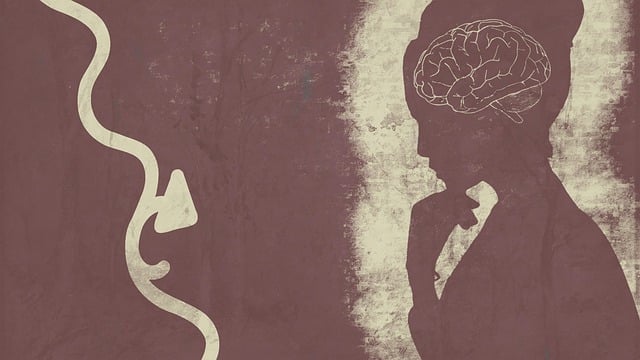Understanding mental illness is pivotal for Broomfield Abuse Survivors seeking therapy, especially recognizing distinct conditions like PTSD, depression, and anxiety. A comprehensive guide on common disorders and their unique manifestations in abuse survivors is essential, empowering individuals to engage with treatment plans, manage co-occurring issues, build resilience, and develop personalized wellness strategies. Community outreach programs focusing on positive thinking and supportive networks significantly enhance the therapeutic journey. Broomfield Abuse Survivors Therapy (BAST) offers holistic healing through skilled professionals, individual therapy sessions, confidence-building, and tailored coping strategies. Robust support networks, including specialized groups and resources like Trauma Support Services and Mental Illness Stigma Reduction Efforts, strengthen community connections and encourage recovery. Incorporating self-care strategies and BAST's techniques enhance mental health resilience and foster a healing environment.
“Mental illness diagnosis and treatment navigation can be challenging, especially for those recovering from trauma. This comprehensive guide aims to support individuals navigating their mental health journey at Broomfield Abuse Survivors Therapy (BAST). We explore essential aspects of understanding diagnoses, delving into the therapeutic process, building supportive networks, and empowering self-care strategies. By providing practical insights and resources, this article assists survivors in making informed decisions and fostering effective recovery within the context of BAST.”
- Understanding Mental Illness Diagnoses: A Comprehensive Guide for Broomfield Abuse Survivors
- The Therapeutic Process: Navigating Treatment Options at Broomfield Abuse Survivors Therapy
- Building a Supportive Network: Resources and Community for Effective Recovery
- Self-Care Strategies: Empowering Tools for Managing Mental Health After Diagnosis
Understanding Mental Illness Diagnoses: A Comprehensive Guide for Broomfield Abuse Survivors

Understanding Mental Illness Diagnoses is a critical step for Broomfield Abuse Survivors seeking therapy and recovery. It involves recognizing that mental health conditions are distinct from temporary emotions or situations, but rather complex neurological and psychological states. A comprehensive guide should demystify common disorders, their symptoms, and unique manifestations in survivors of abuse, fostering a deeper understanding of one’s experiences. This knowledge empowers individuals to engage more effectively with their treatment plans.
For Broomfield Abuse Survivors, navigating therapy requires not only addressing trauma but also managing potential co-occurring mental health issues. A well-informed approach encourages resilience building by helping survivors identify coping mechanisms and develop personalized strategies for long-term wellness. Community outreach program implementation, focusing on positive thinking and supportive networks, can significantly enhance the therapeutic journey, leading to more successful outcomes.
The Therapeutic Process: Navigating Treatment Options at Broomfield Abuse Survivors Therapy

At Broomfield Abuse Survivors Therapy (BAST), the therapeutic process is designed to help individuals navigate their mental health journey with compassion and expertise. Our team of trained professionals utilize a holistic approach, recognizing that healing involves addressing not only symptoms but also underlying emotional intelligence and personal resilience. Through individual therapy sessions, we guide clients in understanding and managing their emotions, providing tools for effective mood regulation and stress reduction.
BAST offers a safe space where clients can explore and express their feelings freely. We emphasize the importance of building confidence and self-esteem, empowering individuals to face challenges head-on. By combining evidence-based therapeutic techniques with a supportive environment, BAST helps clients develop coping strategies tailored to their unique needs. This personalized approach ensures that treatment options are accessible and effective, fostering sustainable mental well-being.
Building a Supportive Network: Resources and Community for Effective Recovery

Building a supportive network is an integral part of navigating mental illness and fostering effective recovery. Connecting with like-minded individuals who understand the challenges can significantly impact one’s journey. Community resources, such as support groups facilitated by professionals at Broomfield Abuse Survivors Therapy, provide safe spaces to share experiences, gain insights, and offer encouragement. These groups often cater to specific demographics or issues, ensuring individuals find their tribe and feel understood.
In addition to these formal networks, fostering a supportive community involves integrating various resources like Trauma Support Services, which offer specialized therapy options, and engaging in Mental Illness Stigma Reduction Efforts. Social Skills Training can also play a vital role in helping individuals navigate social interactions and build meaningful connections, ultimately strengthening their support system.
Self-Care Strategies: Empowering Tools for Managing Mental Health After Diagnosis

After receiving a mental health diagnosis, incorporating effective self-care strategies becomes an empowering tool for managing one’s well-being. These practices, akin to tending to a garden, require nurturing and consistent care. Engaging in regular physical activity, adopting healthy sleep habits, and maintaining a balanced diet can significantly impact mental resilience. Additionally, setting achievable goals and practicing mindfulness through activities like meditation or journaling helps individuals stay grounded and focused on their recovery journey.
Broomfield Abuse Survivors Therapy (BAST) offers valuable resources for those navigating mental illness. Incorporating compassion cultivation practices within therapy sessions enables clients to develop a deeper sense of self-compassion, fostering an environment where healing can flourish. By combining these techniques with positive thinking and effective communication strategies, individuals gain invaluable tools to enhance their overall mental health and resilience.
For individuals navigating the complex landscape of mental illness, Broomfield Abuse Survivors Therapy offers a comprehensive support system. Through their understanding of diagnostic processes, therapeutic approaches, and self-care strategies, they empower clients to build resilience and foster recovery. The resources provided in their supportive network ensure that no one faces mental health challenges alone, facilitating a transformative journey towards well-being. By combining expert guidance and a nurturing environment, Broomfield Abuse Survivors Therapy serves as a beacon of hope, guiding individuals toward healing and a brighter future.














